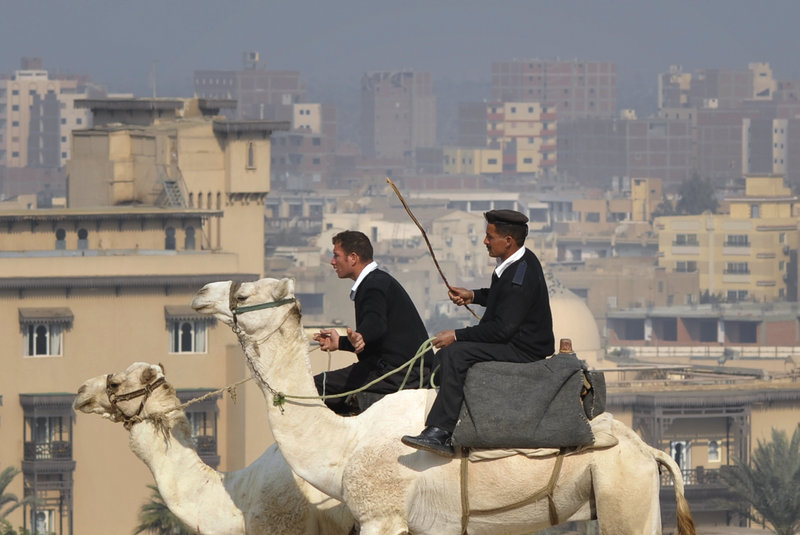CAIRO – Egypt’s Muslim Brotherhood, emerging as the biggest winner in the first round of parliamentary elections, sought Saturday to reassure Egyptians that it would not sacrifice personal freedoms in promoting Islamic law.
The deputy head of the Brotherhood’s new political party, Essam el-Erian, said the group is not interested in imposing Islamic values on Egypt, home to a sizable Christian minority and others who object to being subject to strict Islamic codes.
“We represent a moderate and fair party,” el-Erian said of his Freedom and Justice Party. “We want to apply the basics of Shariah law in a fair way that respects human rights and personal rights,” he said, referring to Islamic law.
The comments were the clearest indication that the Brotherhood was distancing itself from the ultraconservative Islamist Nour Party, which appears to have won the second-largest share of votes in the election’s first phase.
The Nour Party espouses a strict interpretation of Islam similar to that of Saudi Arabia, where the sexes are segregated and women must be veiled and are barred from driving.
Egypt’s election commission has released few official results from the voting Monday and Tuesday. But preliminary counts have been leaked by judges and individual political groups showing both parties could together control a majority of seats in the lower house of parliament if they formed an alliance.
The Brotherhood recently denied in a statement that it seeks to form an alliance with the Nour Party in parliament, calling it “premature and mere media speculation.”
On Saturday, el-Erian made it clear that the Brotherhood does not share Nour’s more hard-line aspirations to strictly enforce Islamic codes in Egyptians’ daily lives.
“We respect all people in their choice of religion and life,” he said.
Another major check on such an agenda is the council of generals who have run the country since President Hosni Mubarak’s ouster in February. The military council, accused by Egypt’s protest movement of stalling a transition to civilian and democratic rule, is seeking to limit the powers of the next parliament and maintain close oversight over the drafting of a new constitution.
Egypt already uses Shariah law as the basis for legislation; however, Egyptian laws remain largely secular as Shariah does not cover all aspects of modern life.
On its English-language Twitter account, the Brotherhood said that its priorities were to fix Egypt’s economy and improve the lives of ordinary Egyptians, “not to change (the) face of Egypt into (an) Islamic state.”
El-Erian urged the Brotherhood’s political rivals to accept the election results.
“We all believe that our success as Egyptians toward democracy is a real success and we want everyone to accept this democratic system. This is the guarantee for stability,” he said.
For decades, Mubarak’s regime suppressed the Brotherhood, which was politically banned but managed to establish a vast network of activists and charities offering free food and medical services throughout the country’s impoverished neighborhoods and villages.
The vote for parliament’s lower house is taking place over three stages, with 18 provinces in Egypt yet to vote.
Meanwhile, the swearing-in of a new temporary Cabinet was delayed Saturday due to disagreements over key posts, including who will lead the ministry in charge of internal security.
An official in the Interior Ministry said several high-ranking security officials have been named as possible replacements but that some have turned down the offer.
Send questions/comments to the editors.



Success. Please wait for the page to reload. If the page does not reload within 5 seconds, please refresh the page.
Enter your email and password to access comments.
Hi, to comment on stories you must . This profile is in addition to your subscription and website login.
Already have a commenting profile? .
Invalid username/password.
Please check your email to confirm and complete your registration.
Only subscribers are eligible to post comments. Please subscribe or login first for digital access. Here’s why.
Use the form below to reset your password. When you've submitted your account email, we will send an email with a reset code.